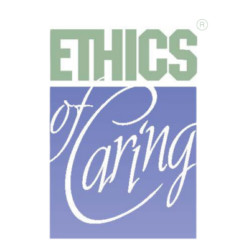2025 Conference
“Words can be lifegiving. What can I offer that is lifegiving here? What words wake people up?”

Marilyn McEntyre, PhD
Closing Speaker, Day Two: It Matters How You Put It: Words and Wellbeing
Marilyn McEntyre was interviewed by NNEC Planning Committee Member Beth Kohlberg, MEHCE, BSN, RN, HEC-C.
Click to Share this 2025 Spotlight!
Q:
What advice would you give to develop and maintain trust among patients, families, communities and the health professions?
Words can be lifegiving. What can I offer that is lifegiving here? What words wake people up? What helps us dig down under the layer of cliches and white lies? Black and brown Americans often distrust medical institutions. How do nurses help them and say, “This system isn’t serving you well. What can we do about it?” An acknowledgment is important. Systems don’t always serve people well. Consider asking, “Who are you? What will be harder for you now when you go home?” Get to know individuals. Open up a conversation and step outside the “I am the nurse. You are the patient.” Find ways to say, “I see you. I value you. I wonder about you.” When speaking to patients, take the judgment out of the
conversation. Pay attention to words like, “I noticed…” or “I see…” or “I hear you say…”. I encourage my students to pause over a word or interact with just one word. For example, John Lewis said, “Get in good trouble. Necessary trouble.” If we are to pause over the word trouble, what does trouble mean here? Explore just that word and the impact that “trouble” has. I also use poetry when I teach medical students to help doctors pause, to be comfortable pausing, and to find the right words for a specific situation.
Pick a word that stands out. Not a sentence, phrase or paragraph; but one word. They must share why that word made a difference. I want students to look at the glass, not at the window. If you do that,
something happens. You get to the “musical” level of language.
– Marilyn McEntyre
Q:
Our choice of words can change the meaning of what we are attempting to convey. A good example is discussing “withdrawing care.” Clinicians are aware that we never withdraw care at the end of life. Adjusting that language to withdrawal of technology or treatment that is harmful or no longer beneficial changes the conversation. Can you think of other examples of language that creates misunderstanding?
We are in a culture and society that comodifies everything. People “generate” words instead of thinking about how words can be inviting, enticing, and inspiring. We are all operating in a contaminated language environment. It is profit-driven, politically associated, and there is social media shorthand. Speaking a word can invigorate us and challenge us. For example, in the political climate today, if you call an immigrant an “illegal,” it obscures their humanity. It makes it harder to see them, harder to hear them. It can be deceptive. What does that mean for those in medicine? Other examples are when people use metaphors for suffering. A “battle with cancer.” Your body is not a battleground. Change the language to a “journey with cancer.” “Loss” is seen as a failure in this culture, but we all die. “End of the journey” is a more gentle way of saying it.
Words are an instrument of our work.
